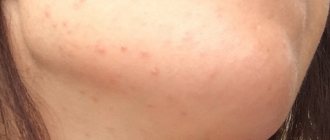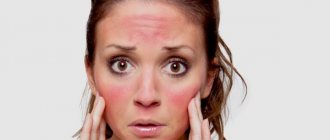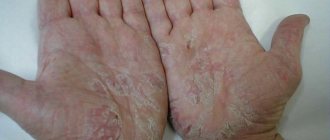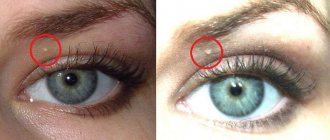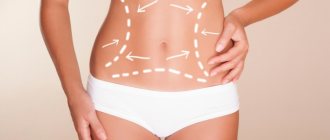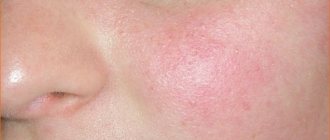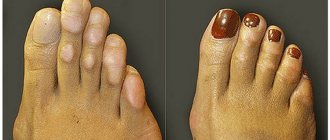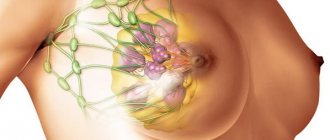Articles › Burning and itching on the cheeks, itchy cheekbones, the face is red and burning
The question “ why do you want to scratch your face ” can only be answered by a dermatologist after examining the patient and conducting a series of tests. Only a specialist can determine the real cause of facial skin itching, redness or peeling. But you can independently familiarize yourself with the possible origins of its appearance.
- Origins of skin problems Dermatitis
- Dry skin
- Temperature effect
- Internal diseases
- Demodicosis
- Psychological diseases
- Psoriasis
- Seborrhea
What causes itching
Your face may itch as a result of an allergic reaction.
Our skin instantly reacts to any external and internal irritants, signaling changes and defects that appear on the surface of the epidermis. The most important thing is to find out the cause of the pathology in order to successfully and quickly get rid of it. Most often the face itches due to:
- allergic reaction of the body to food, flowering plants, dust, pet hair, decorative and caring cosmetics;
- reaction of the epidermis to climatic conditions (cold, heat, wind, high humidity) or temperature changes (for example, when entering a warm room from a frost);
- dry skin, when a low amount of natural fatty secretion is produced, as well as when using products that contain a high content of alcohol;
- intense ultraviolet irradiation and excessive use of solariums, which provoke wilting and burns of the skin layer;
- long-term use of various medications, such as strong antibiotics or hormonal compounds, to which the skin reacts in a similar way;
- diseases of internal organs (chickenpox, measles, diabetes, anemia, oncological processes occurring in the body);
- bad habits (drinking alcohol, smoking);
- chronic dermatological diseases (seborrhea, psoriasis, rosacea, demodicosis);
- inadequate and incorrect diet with a high proportion of fatty, fried, smoked, salted, pickled, spicy foods and dishes;
- disturbances in the functioning of the nervous system associated with frequent stress, shock, neuroses, and emotional distress;
- intoxication of the body (poisoning);
- infectious and viral lesions of the skin;
- failure to comply with basic sanitary and everyday hygiene measures;
- dysfunction of the gastrointestinal tract;
- vitamin deficiency due to strict diets and food restrictions;
- viral benign neoplasms on the skin (papillomas, keratomas, melanomas, hemangiomas).
It is necessary to analyze your lifestyle and try to identify the factors that cause itching on the skin. If you are unable to do this, then you need to seek help from a dermatologist as soon as possible!
Itching and swelling as a result of allergies
Allergy is an immunopathological process in which the body's immune system is not able to fight allergens - its causative agents. The number of people suffering from allergies is growing every year. According to rough estimates, today every third resident of our country suffers from allergic diseases: hay fever, urticaria, etc. The main symptoms of this pathology are:
- runny nose and sneezing;
- a burning sensation in the eyes;
- cough with attacks of suffocation;
- formation of edema on the eyelids;
- redness of the conjunctiva;
- itching and burning in the eyes;
- tearfulness.
Swelling of the eyelids of an allergic nature occurs due to the fact that allergens entering the body destroy protein components and release endogenous histamine. This biologically active substance is the main factor provoking an allergic reaction. Allergic swelling of the eyelid can be caused by an external irritant entering the body. The degree of reaction varies. It depends on the number of allergens, the state of the immune system and other factors.
Most often, the eyes become itchy and watery due to contact with components such as:
- animal hair;
- cosmetical tools;
- medications;
- temperature changes;
- Food;
- plant pollen.
After contact with an allergen, a person experiences itching and swelling of the eyelids, itchy eyes, and watery eyes. Swelling develops due to abundant accumulation of fluid, irritation of nerve endings by bacteria and allergens that have entered the body. Because of this, the eyes begin to itch and the eyelids swell. The skin around the eyes is thin and sensitive, so it reacts sharply to the allergen. Antihistamines, which should be prescribed by a doctor, help to cope with this condition. If treatment recommendations are not followed, there is a likely risk of complications: eye infection, erosion of the ocular membrane, etc.
Common diseases of the epidermis
As a result of a comprehensive examination of the body, the dermatologist establishes a final diagnosis and prescribes therapeutic treatment with medications and special ointments.
The most common lesions of the epidermis that cause facial itching are:
- seborrhea, characterized by enlarged pores, oily sheen, peeling, itching, and the appearance of pink spots that can become covered with acne and pimples. The method of its treatment involves taking sodium thiosulfate, calcium chloride, antibacterial ointments, creams, pharmaceutical mash, special solutions;
- psoriasis, expressed by the appearance of redness, flaking scales against the background of severe itching of the face. Methods of treatment, as a rule, choose local therapy using sulfur-tar, naphthalan, salicylic ointments, phototherapy (irradiation of the skin with ultraviolet radiation), taking homeopathic remedies;
- demodicosis (subcutaneous mite), accompanied by the formation of acne and eyelash loss. The face itches unbearably, especially at night. Treatment involves strengthening the body's immune defense, normalizing the functioning of the gastrointestinal tract, taking antiparasitic drugs (metronidazole, trichopolum or tinidazole), using external ointments (sulfur, yellow mercury, ichthyol), antibacterial compounds called Permethrin, Aversect, anti-inflammatory creams;
- rosacea, in which the skin on the face is very itchy, red, inflamed, and tubercles and a network of blood vessels appear on it. Treatment methods include the use of metronidazole ointments and tablets, boric acid-based lotions, cryotherapy, antibiotics, immunomodulators, and special massage techniques.
Facial itching is often accompanied by peeling skin
A baby's cheek is peeling: reasons
In children, redness of the cheeks can be caused by the following reasons.
A baby's cheek is peeling: reasons
- Hypothermia . This often occurs in the cold, during the cold season, after moving the child indoors, the cheeks remain red for a long period of time
- Shyness or Shyness
- Overheating in the sun
In infants, the skin on the cheeks may turn red immediately after eating; this is a normal reaction of the body. There are other reasons why children under 1 year of age may have red cheeks:
- Teething. At the same time, the epidermis often becomes scarlet around the nose and mouth. If itching and flaking appear along with redness, these are signs of a food allergy.
- If the face is completely red, including the cheeks, then it is possible that the room is very hot and the child is overheated. If the baby is sick, his cheeks are red, his nose and lips are almost whitish, the child is not eating well and there is a periodic cough, immediately go to see a doctor. These are signs of pneumonia. If a child’s cheeks turn red at night, this indicates diseases of the cardiovascular system.
Red cheeks
Universal methods of treatment
Universal medications that help get rid of itching on the face are:
- antihistamines (antiallergic drugs) for oral use (for example, suprastin, tsetrin, fenkarol);
- talc-based powders;
- special ointments that have a local effect (for example, cooling menthol);
- compresses with boric acid (15 milliliters of boric acid are dissolved in 0.5 liters of water), performed using a bandage or gauze.
All of the listed treatment methods are for informational purposes only and should be prescribed only by a dermatologist after a visual examination and obtaining data from the patient’s basic clinical tests!
Red cheeks in an adult: a sign of illness
There are also pathological processes.
Red cheeks in an adult, a sign of illness:
- Changes in hormonal levels . This often happens in pregnant women, women during menopause, and after drinking alcohol.
- It is not uncommon for people with a high fever to also have red cheeks.
- Allergic reactions. Other symptoms may be present along with the redness.
- Lack of vitamins. This mainly happens in the spring, when the supply of vitamins in the body has dried up and there are not enough of them for the functioning of organs and systems. Along with redness, fatigue and viral diseases may occur.
- Taking certain medications. This often happens after taking hormonal medications to treat gynecological ailments, and during menopause.
- Diseases of a dermatological nature.
- Pathologies in the gastrointestinal tract. Along with red cheeks there is nausea, stomach pain, and lack of appetite.
Redness
Basic tips and tricks
As you know, it is easier to prevent any disease than to get rid of it, so we would like to introduce our readers to the following basic rules that help keep facial skin healthy and beautiful:
- try to limit the consumption of citrus fruits and dairy products, which most often provoke an allergic reaction, manifested in the form of itchy skin;
- at any time of the year, and especially in winter, the skin of the face must be protected with special creams in order to reduce the negative effects of low temperature, wind, snow and solar activity;
- Before starting to use new cosmetics (care and decorative), be sure to test the epidermis in the wrist area. If redness and itching appear on the skin within half an hour after application, do not use these products;
- creams containing propylene glycol, especially when this substance is indicated at the beginning of the list of component composition, very often causes severe allergic skin reactions, including persistent redness and peeling as a result of a chemical burn;
- monitor the frequency of visits to baths and saunas, which expose the skin surface to dry, hot air that can provoke facial itching;
- Despite the weather outside, the skin should receive intense hydration, which is provided by special homemade masks. When the level of moisture in the cells of the skin tissue decreases, the face may begin to itch very much;
- cold, hard tap water negatively affects the skin, causing inflammatory reactions with itching and irritation. Use warm boiled or filtered water to wash your face;
- do not use medications for longer than 2 weeks without a doctor’s prescription, since their side effect most often manifests itself in the form of skin itching;
- walk in the fresh air every day, filling the epidermal cells with oxygen, which has a tonic, strengthening and rejuvenating effect;
- try to expose your face to ultraviolet radiation as little as possible, which causes burns, dryness and premature aging;
- eat more raw vegetables and fruits, which replenish the deficiency of essential vitamins and microelements in the body, as well as normalize the functioning of the gastrointestinal tract;
- do not be nervous over trifles, avoid stress, depression and various worries. The most effective remedy against such conditions is the usual tincture of valerian;
- undergo a comprehensive examination of the body, which can promptly identify any disturbance in the functioning of internal organs in order to successfully and quickly defeat it.
Why does the skin on my cheeks peel off due to allergies?
In most cases, discomfort in the cheeks and cheekbones is caused by unfavorable weather conditions. It can be a strong wind, frost, in such conditions very sensitive skin can turn red, peel, and cracks may appear. To prevent this from happening, such skin requires special care.
Why does the skin on my cheeks peel?
- It happens that redness, peeling, itching in the cheek area has nothing to do with climatic conditions at all, and occurs in response to irritants. Most often this happens after using cosmetics . This can be foundation, base, powder, highlighter.
- Basically, these are decorative cosmetics that are applied with driving, rubbing movements onto the skin, including the cheeks. The main problem is that even quite expensive cosmetics can cause discomfort and allergic reactions.
- Therefore, women who experience overly sensitive skin should use special cosmetics. Usually, cheap products from the mass market are not suitable, and can aggravate the situation. The saddest thing is that in response to ordinary irritants, after redness and peeling, cracks and even wounds may appear.
Allergy
Home remedies
The following remedies can help relieve itchy skin:
- apple cider vinegar diluted with purified water in a 1:1 ratio, which should be used to wipe the skin once a day;
- baking soda, diluted with boiled water in equal proportions, applied to itchy areas twice a day and left for 20 minutes;
- warm compresses with chamomile, string or mint, which have a pronounced anti-inflammatory and disinfectant effect.
Health and beauty to your skin!



